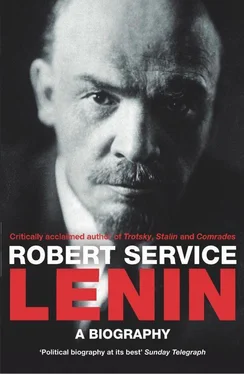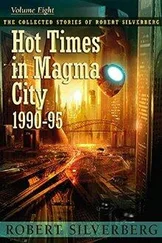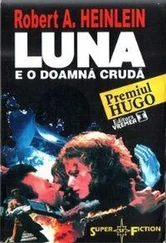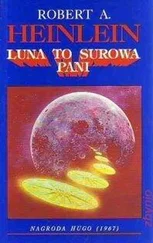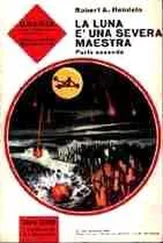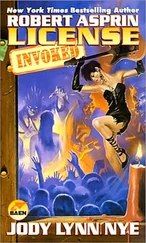Inhabitants of Simbirsk had cultural achievements to their name. One of Russia’s greatest historians Nikolai Karamzin, who died in 1826, had hailed from the province. So, too, had the writer Ivan Goncharov, whose novel Oblomov – published in serial form in the 1850s – has become a European literary classic. Admittedly Simbirsk was not a centre of cultural and intellectual effervescence. The Karamzin Public Library did not have a very large stock and the bookshops were few; no literary circle existed there. But those individuals aspiring to a role in public life were not incapacitated by having been brought up there. It may even have been an advantage for them. Many of the most original Russian writers, thinkers and politicians came from a provincial milieu. Such intellectuals benefited from spending their early years outside the claustrophobic cultural atmosphere of St Petersburg. They developed their ideas on their own or within a small, supportive group, and did not have the originality and confidence crushed out of them. Often they were the ones who attacked the conventional wisdom of the day and were the country’s innovators – and there was to be no more innovative revolutionary thinker and politician than the man who had started life in Simbirsk as Vladimir Ulyanov.
The Ulyanov family had moved to Simbirsk in autumn 1869, a few months before the birth of Vladimir. The father, whose full name was Ilya Nikolaevich Ulyanov, had been appointed as Inspector of Popular Schools for the province. He brought his pregnant wife Maria Alexandrovna Ulyanova and their two children, Alexander and Anna, to the home they would rent from the Pribylovski family on Streletskaya Street. 3Ilya’s post had been created as part of the government’s scheme for a rapid expansion of schooling in the mid-1860s. He immediately became a prominent figure in the affairs of the town and province of Simbirsk.
Ilya and Maria Ulyanov had a heterogeneous background. The Soviet authorities were to try to keep secret the fact that Maria was of partly Jewish ancestry. Her paternal grandfather Moshko Blank was a Jewish trader in wine and spirits in Starokonstantinov in Volynia province in the western borderlands of the Russian Empire. Starokonstantinov was a small town and most of its inhabitants were Jews. Moshko was frequently in conflict with his neighbours, including his son Abel. He took Abel to court for verbal and physical abuse. 4But the result stunned him. The judge did not believe Moshko and fined him rather than his son. In 1803, Moshko himself was prosecuted when his Jewish neighbours brought an action against him for stealing hay. Two years later he was charged with selling illegally distilled vodka. In both cases he was found innocent. But in 1808 his luck ran out when he spent several months in prison on a charge of arson. Eventually he was again cleared of guilt, and he moved with his family to the provincial capital Zhitomir. Yet he did not forget his humiliation in Starokonstantinov. In 1824, he appealed for a judicial review of the arson case and secured the fining of the families who had prosecuted him. Moshko was no man to trifle with. It was a feature that one of his descendants was to share. 5
Moshko Blank was not a practising Jew. His parents had not brought him up to observe the Jewish faith, and he had not sent his own children to the local Jewish school. By tradition they ought to have gone to the Starokonstantinov heder to learn Hebrew and study the Torah. Instead Moshko entered them for the new district state school where they would be taught in Russian. When Moshko’s wife died, he broke the remaining connections with the faith of his ancestors. He approached the local priest and was baptised as an Orthodox Christian. 6
Perhaps Moshko Blank underwent a spiritual experience, but he may have had a more material motive. Conversion to Christianity would eliminate obstacles to his social and economic advancement. Few Jews had lived in the Russian Empire until the three partitions of 1772–95, when Austria, Prussia and Russia divided up Poland among themselves. The result was that the tsars acquired a large number of Jewish subjects. Catherine the Great feared unpopularity if she were to allow them to move outside the western borderlands since religious and economic hostility to Jews was common to Russians of every rank. She therefore issued a decree confining them to a Pale of Settlement in the western borderlands. Only the very small proportion of wealthy Jews was permitted to live outside the Pale and Jews could not attain the rank of nobleman. The solution for an ambitious, unbelieving Jew was to seek conversion to Orthodox Christianity. Any such former Jew was automatically registered as a Russian and was relieved of the burden of discriminatory legislation. Moshko Blank no doubt felt unusually hampered by his Jewish status since, by his own account, he had no religious or educational affiliation to Judaism.
Yet few apostates behaved quite as aggressively to their former coreligionists as Moshko Blank, who wrote to the Ministry of the Interior suggesting additional constraints upon Jews. He proposed to ban the Jews from selling non-Kosher food (which they could not eat themselves) and from employing Christians on the Jewish sabbath (when Jews could perform no work). He particularly urged that the Hasidim, the fervent and mystical Jewish sect, should be prohibited from holding meetings. Moshko’s militancy was extraordinary. He called upon the Ministry of the Interior to prevent Jews in general from praying for the coming of the Messiah and to oblige them to pray for the health of the Emperor and his family. 7In short, Moshko Blank was an anti-semite. This point deserves emphasis. Several contemporary writers in Russia have argued that Lenin’s Jewish background predetermined his ideas and behaviour. The writers in question tend towards anti-semitic opinions. 8But, in trying to pursue a Russian nationalist agenda by an emphasis upon the Jewish connections of Lenin, they avoid the plain fact that Moshko Blank was an enemy of Judaism and that no specific aspect of their Jewish background remained important for his children. 9
Moshko’s sons, Abel and Srul, equalled him in their desire to dissolve their Jewish ties. Indeed they underwent conversion to Christianity before their father Moshko, who had sent them to study at the Medical-Surgical Academy in St Petersburg. Evidently Moshko did not hold a grudge against Abel for the violent clash that led them to appearing against each other in court in Zhitomir. Abel and Srul were choosing a career, in medicine, that was attractive to many who wished to rise from the base of Imperial society. The ‘free professions’ offered a route to public prominence by dint of technical competence. Abel and Srul studied hard to become doctors in St Petersburg. In 1820, after making known their wish to become Christians, they were given baptism in the Samson Cathedral in St Petersburg’s Vyborg district. As was the convention, they were accompanied by Russian nobles who had agreed to be their godparents. Abel and Srul took Christian names: Abel became Dmitri while Srul became Alexander. One of the godparents was Senator Dmitri Baranov, who had conducted a survey of Volynia province on behalf of the Imperial government in 1820 and who actively helped young Jews who converted to Christianity. 10
The Blank brothers qualified as doctors. On graduating in 1824, Alexander (Srul) Blank took up practice initially in Smolensk province. Thereupon he appears to have made his own way in his career. If he kept contact with his father, there is little sign of this in the official records. Alexander was his own man. This was true of him even in his attitude to his studies. While learning the recommended textbooks at the St Petersburg Medical-Surgical Academy, he also read about unorthodox techniques of medicine. 11
Читать дальше
